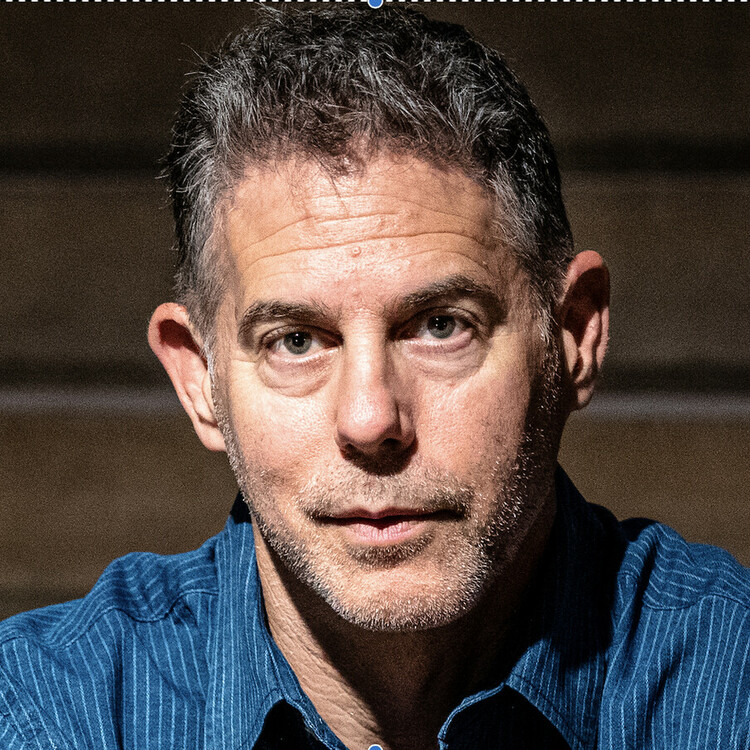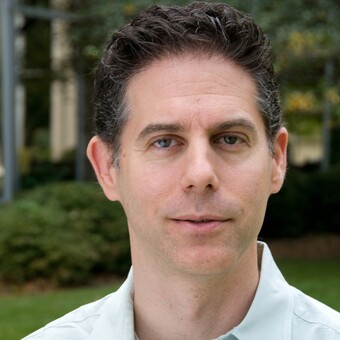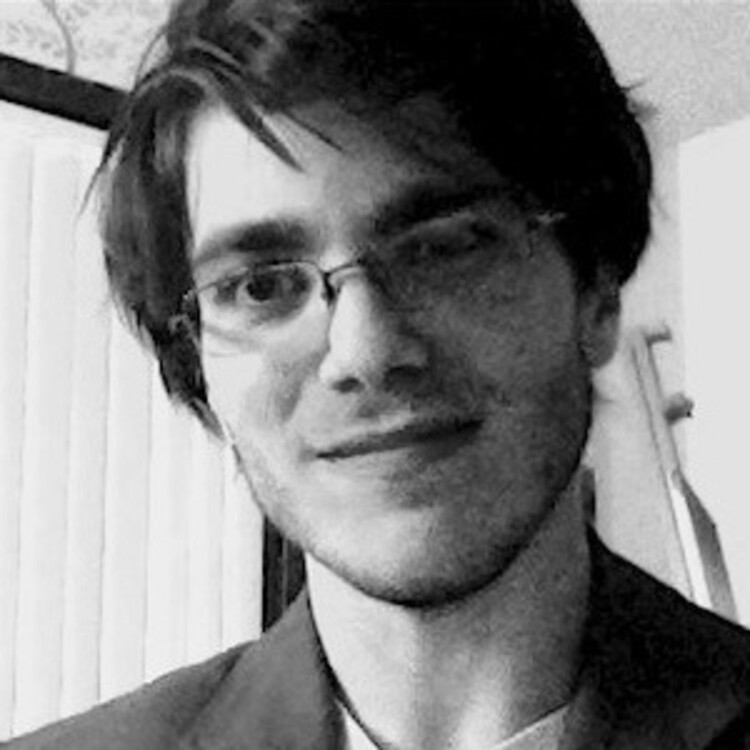The Ideology of Dialogue
This week-long blog series on political ideologies in the theater grew out of Caleb Winebrenner's article responding to Daniel Jones' post. Each writer was invited to respond based upon the intersection of political ideology and art in their work.
I’m happy to have been invited into conversation with Caleb Winebrenner’s article, and through it, new colleagues and old friends. I have an overall question about dialogue and monologue that the article got me thinking about, but to be in a conversation with this article I must first note that:
- Augusto Boal was a friend and mentor of mine. I believe the idea that his body of work can mesh ideologically with a set of political beliefs that does not prioritize society’s responsibility to care for those in need is not an accurate read of his point of view. This doesn’t mean I think people who don’t share Boal’s values cannot or should not use his tools, but it’s worth stating that disjunction. I once heard Augusto in a lengthy conversation with someone who was using Theatre of the Oppressed work to help managers in corporate settings learn how to communicate better in order to get what they needed in negotiations with workers. He was delighted when his tools were used to bring owners and workers into authentic dialogue about worker treatment and the ethics of profit. He was more than dismissive when his approaches were used to devise tools so (and I paraphrase from memory here) bosses could help workers internalize systems or values that were counter to the needs and dignities of the workers themselves.
- I find the suggestion that crowdsourcing replace more traditional funding sources rather than expand the funding palette problematic due to access. Not all organizations and artists make work that speaks for or to constituencies that live fluently in online contexts. Kickstarter and indiegogo are great new platforms for supporting new work. But they exist in a particular kind of marketplace. So long as we are market-based, we need different kinds of markets. We need markets of ideas and of products that invite consumption. We also need markets of service and markets of principle, where different entities, government and otherwise, can find and support projects and individuals who may not have the standing, visibility, or tools to initially navigate commodity markets with success but who will make contributions to society that will enrich their own lives and the lives of others.
I think politics and point of view are not just about content, but also about form and intention.
A lot of my theater work has focused on bringing ideologically diverse voices into rooms to creatively look for common ground and explore community conflict. I think politics and point of view are not just about content, but also about form and intention.
Caleb, there is one line in your essay that stands out to me every time I read it. In relation to Boal’s quote, “have the courage to be happy,” and in the context of your work with young men who have arrived in the US from across the border, you write, “It has meant owning up to having come here illegally, and it has meant learning more and more English.”
I want to talk about that choice of the words “owning up.” To me, it’s an important one.
You could have said “acknowledge.” You could have said “grapple with the fact.” But you use words that seem to, for my eyes as a reader, tell me what you think about the fact of how these young men arrived in this country. And therefore, in your practice, perhaps tell them what you think about how they arrived in this space with you. Which seems to point to a use of the space you are helping shape to in fact guide them in developing a particular read of their own life experience.
You are perhaps bringing your political point of view to bear on how they should see their own narrative.
I believe dialogue is an ideology. It’s a belief that in exchange we learn about each other, the world, and how to see and move through it, differently than if we subscribe to a system of art, of education, or of democracy, based in monologue. Different than education as the dissemination of information; than art as the presentation of curated content; than elections as salesmanship of persona rather than discourse of ideas. So choosing dialogue as a core intention in spaces where one leads activity is a political act. Therefore, I am political in my spaces. I am challenged by your political act in your space. And since your article is about your political point of view, and how it brings a different set of values, but a common goal in terms of process and intention, I challenge your foundation there. Because it seems from what I read in your description, we don’t have a different point of view on political issues when it comes to the use of theater as a tool for community development and individual growth—we may have quite different perspectives on what we believe theater is for.
I do not doubt the power of the work you are doing with these young men, nor the positive experience they are having, nor the meaningful relationship you have with them. But if you are encouraging the individuals you work with to frame their story in a way that is aligned with how you see their story fitting into social and systemic narratives—you arrived here illegally, so in our work together, we will focus on responsibility and liberty and choice—than you are engaged in a monological approach to making theater.
I think the surprise you experience when people learn of your use of pedagogically progressive frameworks aimed at raising critical consciousness may be less about your libertarian values in content, and more about a sense of tension between those values and the form and intention of the frameworks you are utilizing. To be reductive, it seems like you are using dialogue means for monologue ends.
If I am off in the specifics, but you hear in my gist a point worth taking up, I ask you to be forgiving of my incorrect presumptions and note some questions I’m interested in:
- What is an artist’s responsibility when working in a room of people whose political perspectives are varied and even at odds with each other?
- What is an artist’s responsibility when leading in a space with participants who are struggling to make a life in a system that doesn’t seem to value them?
- Is it to challenge that system?
- Is it to help them fit into that system?
- Is it to guide/participate in an inquiry aimed at discovering this answer all together?
- How does privilege and its intersection with a political point of view impact the tactics an artist needs to bring into spaces with diverse participants?
- When working for change, what responsibility (if any) does an artist have to disclose their own core values in relation to intention as they lead processes with individuals who do not have previous experience with that artist?
- What ways can we imagine for “unlikely allies” to work together to “stir citizens to action” not just as varied voices in the composition of a work of art, but as co-leaders even when they perhaps desire different results from the stirring?




Comments
The article is just the start of the conversation—we want to know what you think about this subject, too! HowlRound is a space for knowledge-sharing, and we welcome spirited, thoughtful, and on-topic dialogue. Find our full comments policy here
This has turned out to be one of the best exchanges/conversations that I can
remember since I started reading the column. Short of actually getting us all
in the same room, I can’t imagine a better flow of energy and ideas.
I think that Michael’s concept of dialogue here is so pertinent to our potential
effectiveness as collaborators. As artists, particularly, theatre artists, our
work is most effective when it comes out of the community. That
means speaking and listening with respect. Only in doing so can one possibly
discover “unlikely allies”.
Jan Cohen-Cruz speaks so well in her article in this series of the need for the
community to find a platform to express itself. She states, ”This space for
imagining must not be expected to align with any party platform, no more than
we should be expected to control our dreams.” In doing so, one is able to move beyond the limitations of easy labels.
I have a problem with the labels that have been applied throughout this series to
particular persuasion of the heart and mind. Using terms like liberal and
conservative – even with the hybridization of libertarianism would seem to
build walls and expectations that are hard to see over. As soon as a
perspective is labeled by a particular political persuasion, it can be put in a
box and labeled as “known”. At that point, it can be placed on a shelf with all
the other like thoughts. We are no longer really listening – we are responding out of expectation. Truly hearing becomes difficult at best. By doing so we lose a great opportunity for a rich
and important exchange.
As Michael Rohd would suggest here, dialogue opens up possibility. It perpetuates
a diversity of thought and experience and supports and essential respect for
“otherness” that is at the core of any working community experience. At times
one may find monologue the necessary approach in the dissemination of
information. As a teacher, I find that there are certain days that require a
limited amount of lecture to get through the necessary material. But this monological approach is used to facilitate an active period of dialogue to follow – never as an end in itself.
Michael is absolutely right when he suggests that it is the responsibility of the
artist to open up the tension in the space/room with dialogue.
Our plays must be constructed to explore what it means to be deeply human without
feeling that a political label must be applied. The art (the play) that comes
from the community reflects the heart of that community and may defy easy
political definition.
Thanks to all who have shared so freely and honestly in this exchange.
I plan to take the entire series and use it as a basis for an initial exchange in
my Theatre and Culture class.
Michael Stauffer – Assoc Professor of Theatre
Wheaton College
Wheaton,
IL , 60187
[email protected]
Thanks, Michael, for this thoughtful, nuanced response. And thank you, Caleb, for kicking off this important conversation with courage and candor.
I think you call up some really vital considerations and approaches in this work, Michael--particularly at the end of your piece with the bulleted questions. On the twinned topics of privilege and power--how they influence the creation and facilitation of dialogic space--you remind me of some wise words I heard several years ago: as pedestrian as it may seem, a manifestation of privilege is the setting of an agenda and timeline for meeting. Bearing preconceived notions about what a group should be deliberating over and how long it will take for that group to sufficiently dialogue over a pressing topic--and holding fast/acting on those beliefs in the execution of a session--can be unintentionally exclusionary. A tough pill to swallow for any artist with privilege who aims to create and facilitate spaces for genuine, equitable dialogue. For me, an answer to your question of a "tactic" to employ as an artist/facilitator with privilege and a political viewpoint: often, it's simply about stepping aside, letting others speak, and listening. An individual with privilege, actively listening to those without in a public sphere, can have a remarkably validating, if not democratizing effect.
I also appreciate how you break down the question of form, above. I think employing monologic forms in theatre-making is fine, if not necessary, in many circumstances--political pieces that advocate for human rights, for instance. But as a technical director once told me, you gotta have "the right tool for the right job." Gets back to your question of intention, Michael. Are we trying to open up public dialogue and deliberation over a complex issue, one we don't have a tidy answer for? Are we aiming to advocate for a particular viewpoint? Somewhere in between? What temporal and physical spaces within the pieces we create DEMAND democratic dialogue? Depends on the goals of a particular piece or project, I s'pose, which makes it incumbent upon us as theatre-makers to fully understand the theory, strengths, shortcomings, underbellies, fun, and folly of the methodologies we choose to employ.
I am really intrigued by the idea of "unlikely allies" working together in an arts context. As artists, when we have multiple and even divergent voices working together I think that can help to create art that is even stronger, art that is "dialogical," that encourages discussion instead of being didactic.
Too often in this work I see a group of artmakers get together and all simply agree with each other. But we need to push ourselves to asking how can we get a diverse collection of thinkers into the process, not just to give the work more credibility as being somehow "fair and balanced," but to actually create work that presents divergent sides of an argument without passing judgment on the sides.